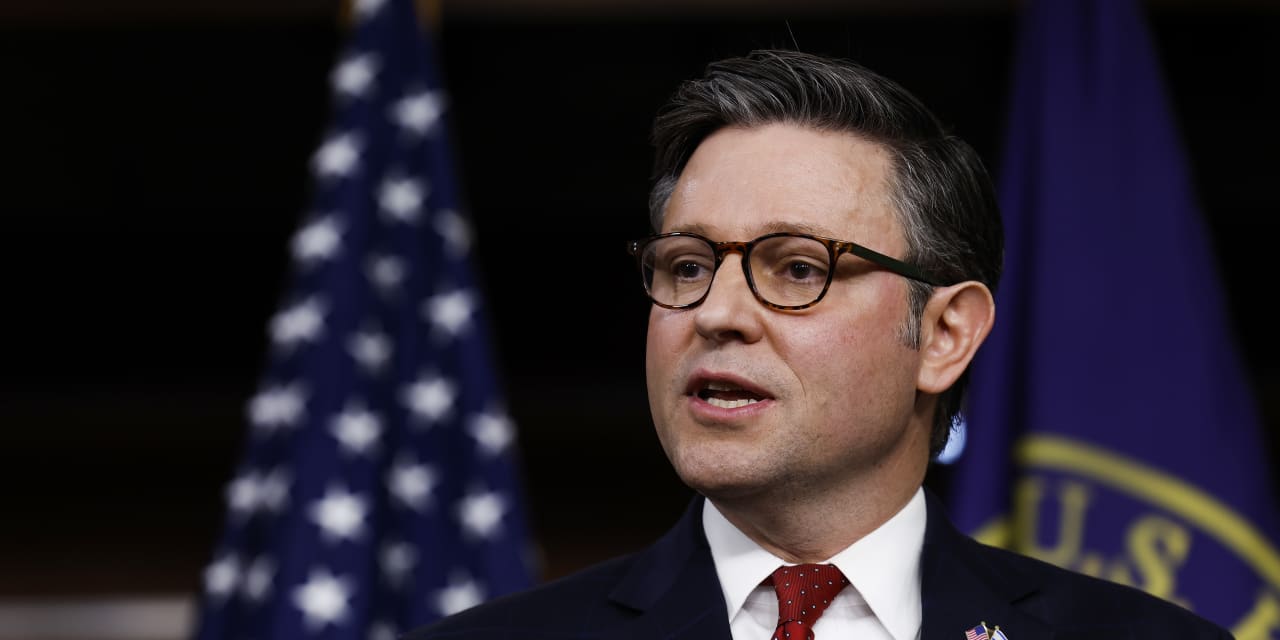House members approved their temporary spending plan on Tuesday by a comfortable margin, passing the matter on to the Senate with just days before a Friday midnight deadline to prevent a federal government shutdown.
If approved in the Senate, it would go to President Joe Biden’s desk for signature.
The House passed the bill 336-95, with 209 Democrats and 127 Republicans supporting Speaker Mike Johnson’s first leadership test. On the “no” side were 93 Republicans and two Democrats.
The Louisiana Republican failed to coalesce his own party around the two-step extension, forcing him to reach across the aisle.
All 100 senators must agree to fast-track the bill for it to pass before Friday, and Senate leaders seemed cautiously optimistic that it would. Senate Majority Leader Chuck Schumer has said he was glad Johnson left out partisan budget cuts that Democrats would have resisted.
“It’s nice to see us working together to prevent a government shutdown,” Senate Minority Leader Mitch McConnell said earlier.
Democrats “voted to keep our government open, our troops paid, and our country running. But we have more work to do,” said Democratic Whip Katherine Clark in a post on X, formerly Twitter. Republicans “must abandon their extremism, honor the bipartisan Fiscal Responsibility Act, and advance a full-year, people-first budget.”
The proposal doesn’t include budget cuts or foreign aid for Israel or Ukraine, but it would fund Agriculture, Transportation, and Veterans Affairs departments and related agencies through Jan. 19, and the Defense Department and the rest of the government through Feb. 2.
Objections to the proposal by House Freedom Caucus members earlier Tuesday forced Johnson to abandon the ordinarily party-only procedural vote to pursue another process that required a two-thirds majority of the larger body, including Democrats.
House Democratic Leader Hakeem Jeffries, and other Democratic leaders released a joint statement before the vote saying they would support it.
Moving forward, they said Congress must advance the supplemental national security and domestic policy funding Biden requested, including nearly $106 billion in aid for Ukraine, Israel, border security, and other spending.
Johnson earlier Tuesday defended his two-tiered continuing resolution to fund the federal government. “We’re not surrendering, we’re fighting, but you have to be wise about choosing the fights,” Johnson said. “You’ve got to fight what you can win, and we’re going to….[but] I can’t turn an aircraft carrier overnight.”
When a reporter noted that passing a continuing resolution with Democratic votes and without spending cuts got former Speaker Kevin McCarthy ousted last month, Johnson said this time is different. “When you have a small majority, things are going to have to be bipartisan.”
The House Freedom Caucus, a group of conservative Republicans, opposed the bill because it contains “no spending reductions, no border security, and not a single meaningful win for the American people.”
Senate Majority Leader Chuck Schumer held back the Senate’s own continuing resolution on Monday to let the House measure move first.
Write to Janet H. Cho at [email protected]
Read the full article here


